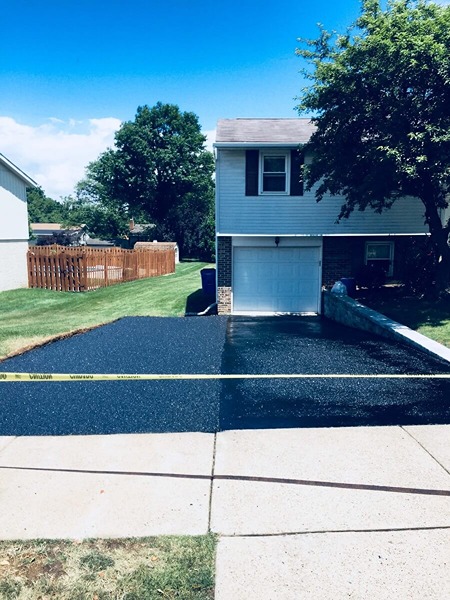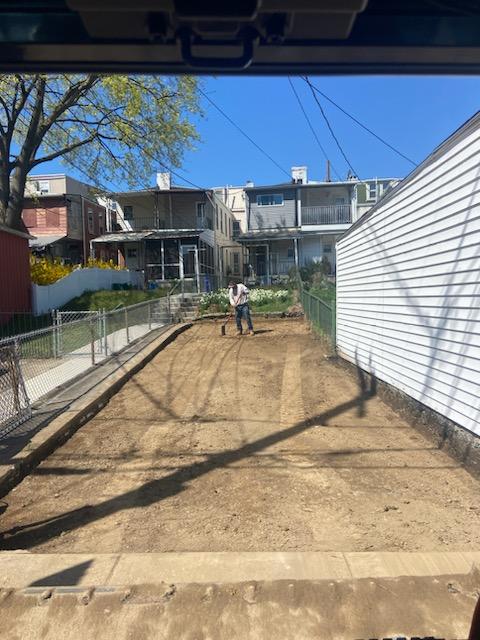Asphalt Paving Driveways: Benefits Costs And Best Practices
Asphalt paving is a commonly used material that offers numerous benefits when it comes to paving driveways. Asphalt provides a durable and cost-effective solution for homeowners looking to improve their curb appeal. Additionally, asphalt requires minimal maintenance and can be installed quickly with the right equipment and expertise.
This article will discuss the various benefits of asphalt paving driveways, as well as the costs associated with installation, and best practices for proper installation.
Asphalt is one of the most popular materials used in driveway construction due to its comparative affordability, durability, and low-maintenance requirements. It is also capable of handling heavy loads without cracking or deforming over time. Furthermore, it can be applied in a variety of colors and textures to create an aesthetically pleasing finish.
With proper installation techniques, asphalt can last up to 20 years or more if properly maintained.

Advantages Of Asphalt Paving
As the saying goes, “A first impression is a lasting impression.” When it comes to asphalt paving, this adage could not be more accurate. Asphalt paving provides an attractive and durable surface for driveways that can last for many years with minimal maintenance. An asphalt driveway is easy to install and can be customized to meet any home’s needs or aesthetic preferences. Asphalt paving contractors use specialized equipment and techniques to construct driveways that are both strong and visually appealing. These techniques include the proper compaction of the base material, the addition of several layers of hot asphalt mix, and a top coat of sealer applied with a professional grade sprayer. A well-constructed asphalt driveway will provide an even surface that resists cracking in cold weather as well as tire marks from vehicles parked on it. The cost of installing an asphalt driveway varies depending on factors such as size, accessibility, local materials costs, and labor rates. It is important to obtain multiple estimates from qualified asphalt contractors so you can compare prices before making a decision. With proper care and maintenance, an asphalt driveway will give you years of reliable performance while adding value to your property.
Cost Of Asphalt Paving Driveways
Asphalt paving is an attractive and cost-effective solution for driveways, parking lots, and other surfaces. It offers a variety of advantages over alternative materials, including durability and low maintenance costs. The cost of asphalt driveway installation will vary depending on the size, complexity, and location of the project. The price to install an asphalt driveway typically includes:
- Materials:
- Asphalt mix
- Aggregate base material
- Geotextile fabric
- Labor:
- Excavation/grading services
- Installation of the aggregate base material and geotextile fabric layer
- Laying of the asphalt mix
- Equipment rental or purchase:
- Excavator or skid steer loader (to remove existing material if necessary)
- Paving machine (for larger projects; may be rented or purchased)
It’s important to consider all factors when budgeting for an asphalt driveway project. Factors such as access to the site and local labor costs can affect total costs significantly. If a contractor is hired for installation, it is important to ask about their experience working with asphalt, as well as any applicable warranties they offer on their work. With proper preparation and experienced professionals, an asphalt driveway can last up to 15 years or more with minimal maintenance. Before beginning any asphalt paving project, it’s essential to prepare the sub-base in order to ensure that the finished surface is stable and durable. Preparation should include clearing away debris from the area, grading the soil correctly, adding a sub-base layer such as crushed stone or gravel, installing a geotextile fabric layer if needed, and ensuring that drainage issues are addressed before any pavement is installed. Following these steps will help ensure a successful paving project that lasts for years to come.
Preparing The Sub-Base For Asphalt Paving
For a successful asphalt paving job, the sub-base must be properly prepared. The first step is to check for a stable and level surface on which to lay the asphalt. If the existing surface is not up to standard, then it will need to be removed and replaced with a suitable material. This may involve bringing in new soil or gravel, depending on the specific needs of the project. The next step is to compact the soil or gravel that has been laid down as part of the sub-base preparation. Compaction ensures that there are no air pockets in the material, resulting in a more secure base for laying down asphalt. This can be done with either hand-operated tools such as tampers or vibration plates, or with heavy machinery such as rollers and plate compactors. Once compaction has been completed, it is important to check that all areas have been adequately flattened and leveled off before proceeding with asphalt paving. Any imperfections can lead to dips and bumps in the finished product, so ensuring accuracy at this stage is essential for ensuring a high-quality result. With proper care taken during these preparation stages, an asphalt driveway can be laid with confidence and long lasting results achieved.

Laying And Compacting The Asphalt
The process of laying and compacting asphalt is one of the most important steps in ensuring a successful driveway installation. This step requires professional experience and expertise, as it requires precision and accuracy. As such, it is recommended to hire a licensed asphalt paving contractor who has the necessary skills and knowledge to get the job done right. When laying down the asphalt, a paving contractor will begin by spreading out the material over the prepared base layer. Depending on the size of the driveway, multiple passes may be made with heavy-duty asphalt pavers to ensure uniform thickness. It is important that all areas are completely covered before any compaction takes place. To compact the asphalt, specialized equipment must be used such as rollers or vibratory plates. The main purpose of this step is to make sure that there are no voids or air pockets present in the finished surface so that it remains stable for years to come. Some of the best practices for compaction include:
- Ensuring that each pass overlaps with previous ones;
- Applying pressure evenly across all areas;
- Making multiple passes with different angles and directions.
By following these guidelines, an experienced contractor can help you achieve flawless results that are built to last. Asphalt driveways should also be inspected regularly for any cracks or potholes that may develop over time due to normal wear and tear. Maintaining these surfaces correctly can extend their life span significantly.
Maintaining Asphalt Driveways
Maintaining asphalt driveways is essential to ensure their longevity and performance. For example, a homeowner in Chicago recently chose to invest in an asphalt driveway for their home. After the project was completed, they put together a maintenance plan to ensure the driveway lasted for many years to come. Regularly inspecting and cleaning the surface of the driveway is one of the most important steps in maintaining an asphalt driveway. This includes removing debris, such as leaves, twigs and other organic matter that may have accumulated on the surface. Also, it’s important to check for any cracks or signs of damage periodically and repair them as needed. Sealing can also be used to extend the life of the asphalt pavement by protecting it from water, oil and other liquids that can cause deterioration over time. Lastly, proper drainage is important for both safety reasons and prolonging the life of an asphalt driveway. Make sure there are no low spots where water can pool up or large amounts of runoff from nearby structures or landscapes that could cause damage to the pavement. Utilizing features like swales or French drains can help direct water away from your driveway and prevent further damage.
Conclusion
Asphalt driveways offer significant benefits to homeowners, from extended longevity to cost savings and environmental advantages. The life expectancy of asphalt pavement can range from 15-20 years when properly installed and maintained. Regular sealing of an asphalt driveway can add an additional 10-15 years of life. Asphalt paving is often a cost effective alternative compared to concrete, depending on the size and complexity of the project. Additionally, asphalt is more ecofriendly than concrete due to its ability to retain heat and reduce carbon dioxide emissions. One example of an environmentally conscious homeowner who utilized asphalt for their driveway was Mrs. Smith in Minneapolis, MN. When she decided to replace her existing driveway, she chose asphalt due to its longevity and environmental advantages offered over other materials. After installation, Mrs Smith was pleased with the results as her new asphalt driveway provided improved curb appeal while also helping contribute to a healthier planet.
How Long Does An Asphalt Driveway Typically Last?
Is Asphalt Driveway Installation Suitable For Diy Projects?
How Often Should An Asphalt Driveway Be Resealed?
Asphalt is one of the most popular materials used for paving driveways and it can last up to 30 years or more when installed correctly. However, to keep your asphalt driveway in optimal condition, resealing should be done every 3-5 years. Resealing involves applying a thin coat of sealant over the existing asphalt which prevents water from seeping into the pavement and causes the surface to become smoother and more resistant to damage caused by temperature changes, ultraviolet rays, road salt, gas and oil spills. This simple maintenance task will help prolong the life of your driveway while also improving its appearance.
How Often Should An Asphalt Driveway Be Resealed?
However, to keep your asphalt driveway in optimal condition, resealing should be done every 3-5 years.
Resealing involves applying a thin coat of sealant over the existing asphalt which prevents water from seeping into the pavement and causes the surface to become smoother and more resistant to damage caused by temperature changes, ultraviolet rays, road salt, gas and oil spills.
This simple maintenance task will help prolong the life of your driveway while also improving its appearance.
Is Asphalt Driveway Installation More Expensive Than Concrete?
Asphalt driveways generally require a thicker base layer, as well as additional labor for preparing and compacting the asphalt before it is laid.
Additionally, asphalt may be more expensive to maintain over time because it requires regular sealing to protect against weather damage.
Despite the higher initial cost of installation, an asphalt driveway has many benefits that make it a worthwhile investment.
Are There Any Environmental Benefits To Using Asphalt For Driveways?
Its production and installation are energy-efficient, it is recyclable, and it can be reused.
Asphalt’s dark color also helps to absorb heat from the sun, reducing the amount of energy required for cooling in adjacent buildings.
Additionally, asphalt does not need to be replaced as often as other driveway paving materials due to its durability and weather resistance.
As a result, asphalt driveways require fewer resources during installation and maintenance, making them an environmentally friendly choice.